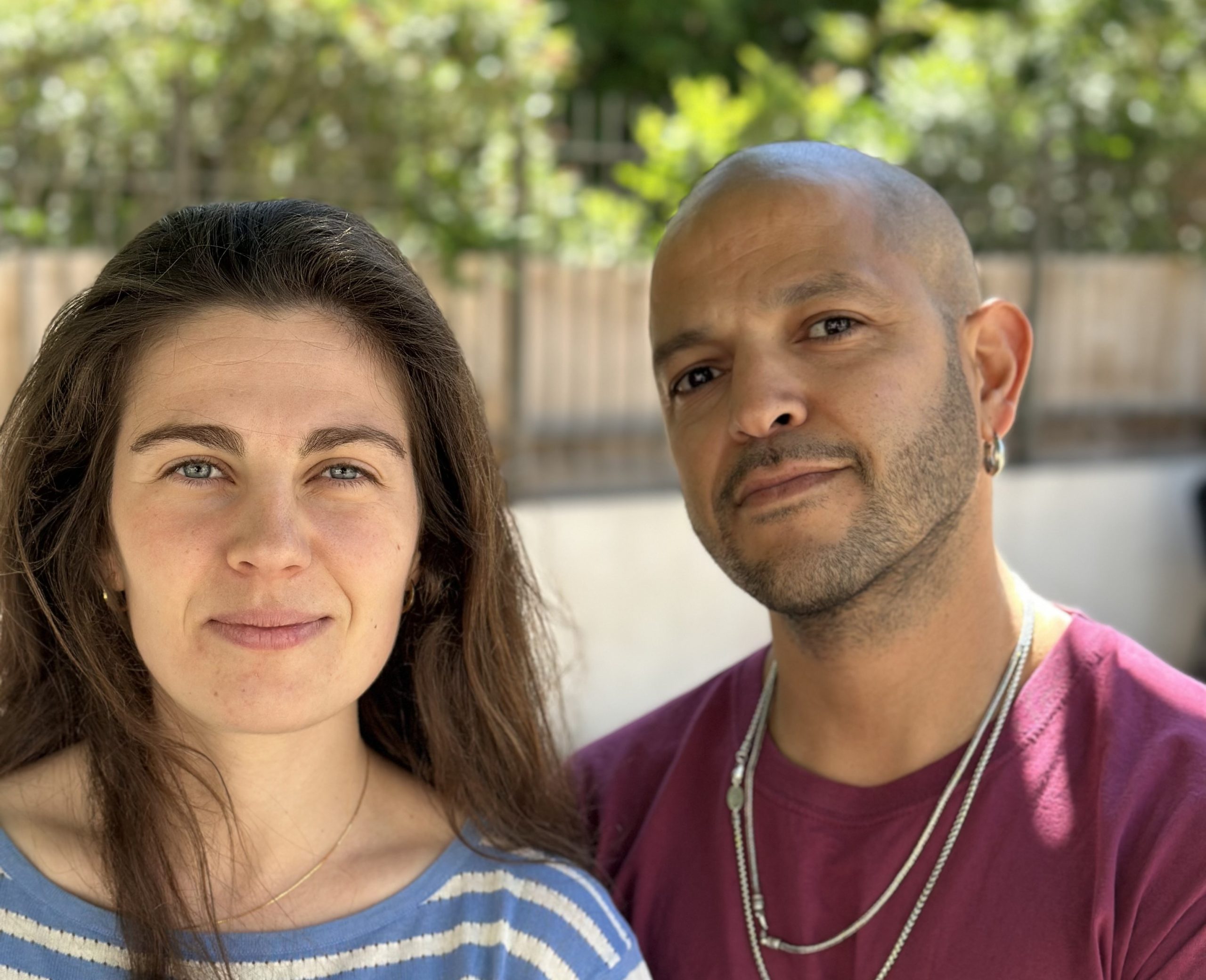Bouziane Bouteldja & Magda Bacha
Choreographer and cultural activist; Deputy director and cultural activist
February-March 2025

- Performing Arts
- Miami
“We will seek to understand how dance can be a means of resistance and emancipation for certain minorities around the world. Through an intersectional approach, we will focus on the history of waacking and voguing within the struggles of LGBTQIA+ communities in the United States.”
Bouziane Bouteldja
I am a choreographer and artistic director of a dance company based in Tarbes in the South-West of France. I also manage a dance center that brings together diverse communities and operates according to the principles of social and solidarity economy. For me, dance is a tool for empowerment, and my choreographic language stems from urban dance. In my artistic work, I always strive to address societal issues, often drawing from my personal history. In my recent performances, I have tackled very different subjects. Always in search of otherness in a plural and fragmented society, Telles quelles/Tels quels (2019) explored multiple identity issues: cultural, gender, or religious. Ruptures (2021) addressed the question of migration in the Anthropocene era. The duo Rideaux de frères (2023) delved into the complexity of Algeria/Morocco relations. My latest creation, Récréations (2023), reflects on the impulses and constraints of today’s youth while seeking ways to open up performance spaces.
Magda Bacha
I work at Théâtre La Cité in Marseille, which organizes the Biennale des écritures du réel festival across the city. Four years ago, I met Bouziane Bouteldja through a two-year artistic creation project aimed at developing a performance based on the experiences and narratives of a group of young people from diverse neighborhoods and socio-cultural backgrounds. On the ground, through these workshops, we observed an increasing prevalence among young people of questions related to sexual orientation and gender identities. Today, in a French political context where victim competition, trends towards communitarianism, and the reconstruction of imagined narratives are on the rise, it is essential to combine approaches—those of social sciences and dance, scientific language and more poetic language—to address these issues, both in programming and in the transmission to the two permanent youth groups at the theater.
Bouziane Bouteldja discovered hip hop dance in 1998 through breakdancing. Numerous encounters quickly led him to explore the dance scene and open up to contemporary dance, while still staying connected to the world of hip hop competitions (he is a member of the Zulu Nation). He has been leading the company DANS6T since 2007 and has created around ten choreographic pieces. In 2016, he was appointed Chevalier of Arts and Letters by the Minister of Culture.
Magda Bacha has an academic background that spans France (Sciences Po Paris), Canada (McGill University), and Denmark (University of Copenhagen), leading her to believe in the richness of interculturality and the transformative power of education through art. Her various professional experiences with companies, creative or performance venues, and festivals have led her to commit to an intermediary place, Théâtre La Cité, where she is now the Deputy Director.
For the past ten years, since the creation of his first solo piece Réversible (2014), Bouziane Bouteldja has been exploring questions related to gender identities indirectly in his performances and various educational setups. Today, the rise of political and religious conservatisms around the world makes this issue even more urgent. This residency will allow us to deepen our understanding of how dance can be a means of resistance and emancipation for social and political struggles of certain minorities around the world. More specifically, we will focus on the history of waacking and voguing as forms of advocacy for LGBTQIA+ communities in the United States.
This research period will feed into two ongoing projects:
- A performance in the form of a “dance lecture” – Des danses et des luttes – which tells the story of dances and the struggles and claims they represent around the world, including in the United States, the Caribbean, Africa, and Europe.
- An educational dance-forum program that combines dance excerpts from Bouziane Bouteldja’s performances, practical exercises, and historical knowledge to open a reflection and debate with a group of about twenty people. The first module – Histoire en mouvement – engaged participants with questions related to cultural diversity, secularism, and integration in the French Republic. This second module aims to place identity questions at the center of the debate. These programs, designed as “discussion days,” facilitate the transition from gesture to speech, connecting personal and collective narratives to place observations, testimonies, and feelings in perspective with social sciences knowledge.
Florida today is a particularly relevant research terrain given that LGBTQIA+ communities are currently under attack by the transphobic and anti-LGBTQIA+ policies implemented by Senator Ron DeSantis in recent years. From the Stonewall Riots in 1969, through the Orlando shooting in 2016, to the “Don’t Say Gay” legislation of 2022, the history of LGBTQIA+ minorities in the United States has previously paved the way for social and political changes in Europe. However, it now faces a resurgence of conservatism, similar to what is occurring in France. This comparative perspective between the United States and France will allow us to better understand the antagonisms and convergences in the struggles of LGBTQIA+ communities in both countries, and we will draw inspiration from it to address these issues more effectively in France.
Once on site, several research axes will structure our work. First, we aim to meet with members of the LGBTQIA+ community to study their discourses and observe their practices in action within their strategies of resistance. For instance, we could meet local choreographers and dancers, and attend major community events such as Palm Beach Pridefest or the Winter Party Festival in Miami. Next, we will conduct our research using an intersectional approach and ensure we gather testimonies from representatives of different cultural communities to understand the intersection of racial and social struggles within LGBTQIA+ advocacy. Indeed, Florida has long been a haven for many Cuban and Latin American migrants since the 1960s and earlier. Finally, we would also like to meet with academic and institutional actors from artistic, cultural, and educational fields to better understand the complexity of political issues and how the dances and struggles of the LGBTQIA+ community are perceived.
In partnership with

Théâtre Joliette
The Théâtre Joliette offers a contemporary program with an international outlook, reflecting the current world. It supports artists at various stages of their creative process and strives to build a relationship between artists and audiences where each nourishes and learns from the other.

